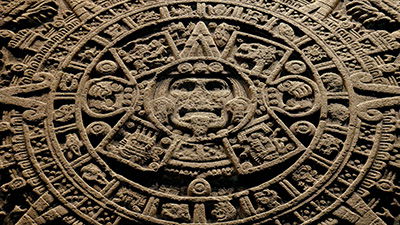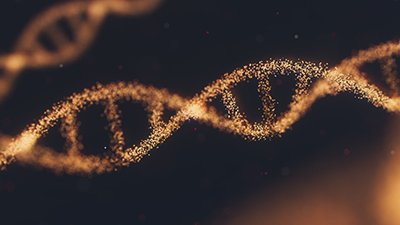How Low Can You Go?
An article published in Nature indicates previous studies may have underestimated the size of the minimal bacterial genome by as much as 50%. Yet, evolutionary significance seems to be lacking.
In a recent news report released by BBC News and other news organizations, scientists have discovered that the number of genes necessary to make the “simplest” living thing (a bacterium) may actually be much greater than originally predicted. An article published in Nature indicates that previous studies may have underestimated the size of the minimal bacterial genome by as much as 50%.
What is a minimal genome?
The answer to that question really depends on who you ask. Currently the most widely held definition is the number of genes considered essential for a bacterium to survive in a nutrient-rich, stress-free and competitor-free environment in the lab. Typically, the bacteria studied are intracellular parasites (e.g., Buchnera and Wigglesworthia were studied in the Nature article), meaning they cannot live outside of their host or are not free-living. These bacteria do not have genes for processes such as DNA repair or metabolism, as the host provides them with protection and nutrients. They do have genes for basic processes such as DNA replication and formation of proteins.
The problem with using this definition is that it seems very idealistic and unrealistic considering the proposed outcomes (discussed later) of research on minimal genomes.
How is a minimal genome determined?
There are several ways to determine minimal genomes. Comparative genomics compares two or more species and looks for genes occurring in all of the species. These are thought to be essential and, therefore, conserved as evolution took place. Another method is to delete or mutate genes one at a time and observe the effect on the organism. If the organism does not meet certain fitness levels as a result of the deletion/mutation then the gene is thought to be essential. Both processes are typically done in silico (as in the Nature article), which means performed on computer rather than in vivo (using living organisms).
An obvious problem with these methods is that they are not being done on living organisms, so the results are only simulations. The problem with the deletion/mutation method that the Nature authors point out is that “functional redundancy” causes many genes that are essential to be labeled as nonessential (possibly as many as 50% are labeled incorrectly). Most bacteria have multiple pathways of synthesizing the same product. (This in and of itself should be amazing to evolutionists because the odds of evolving one pathway to produce something are incredible, but the odds of evolving two pathways to do the same thing are completely unbelievable!) When one pathway is deleted they use an alternative pathway and so the original pathway is labeled nonessential. However, the product may be essential and, therefore, the pathway itself (at least one of them) is also essential. For example, the bacteria E. coli was thought to have 134 essential genes, but the Nature article indicates it may be closer to 245. M. genitalium (the bacteria with the smallest genome—only 480 genes) was thought to have 256 essential genes, but a recent study indicates it may be closer to 382. The numbers keep going up, not down!
Even if a minimal genome is determined by these methods, the true test would be to delete all the nonessential genes at once in a bacterium and see if it can still survive. Current technology does not make this possible. Another method to test the minimal genome would be to synthesize the DNA, put it into a DNA-less bacterium, and see if it could survive. Again, current technology does not allow the synthesis of long DNA pieces, which would be required for this method to work.
What’s the point of determining a minimal genome?
Several reasons have been cited for this scientific endeavor. One would be to create microbes for specific purposes such as cleaning up oil spills (bioremediation). The distinct impression from many articles is that if life can be created in the lab then it really isn’t that difficult to do and so a naturalistic origin of life on earth seems more plausible. But these are intelligent scientists using state-of-the-art technology to try to create these minimalist bacteria. How does that support the concept that it is easy to create life from nonlife? Keep in mind that even the “simplest” bacterium has yet to be produced in the lab and may never be.
Most scientists are studying minimal genomes to better understand ancestral genomes. Evolutionists believe if the genes universal to all life can be determined then it’s just a matter of tinkering with the existing genetic information via mutations to go from goo to you by way of the zoo. The problem is that evolution requires a gain of genetic information, not just altering the current DNA in the organism. No known natural mechanism exists for adding genetic information! The creation model predicts that the original bacterial, plant and animal “kinds” and humans probably had a large genetic diversity that slowly declined via mutation, selection and other mechanisms, leading to some of the species we observe today.
What should be creationists’ perspective on this issue?
While studying minimal genomes may assist in the engineering of useful bacteria in the future, its evolutionary significance seems to be lacking. Many of the bacteria studied actually have very complex, symbiotic relationships with the host they parasitize. For example, Buchnera lives in specialized structures called bacteriocytes in aphids. The aphids and bacteria need each other for their own reproduction—they are totally dependent on each other. In addition, they supply each other with essential nutrients. Now explain how that could have evolved in a step-wise fashion! So rather than this research being a doorway to better understanding a universal ancestor, it is a window open to a greater appreciation of the intelligence and complexity of the Creator God.
References
- ‘More genes’ needed to make life, BBC News, April 3, 2006.
- Eugene V. Koonin, How Many Genes Can Make a Cell: The Minimal-Gene-Set Concept, Annu. Rev. Genomics Hum. Genet. 1:99–116, 2000.
- John I. Glass, et al., Essential genes of a minimal bacterium, Proc. Nat. Acad. Sci. USA 103(2):425–430.
- Csaba Pál, et al., Chance and necessity in the evolution of minimal metabolic networks, Nature 440:667–670, 2006.
- “Buchnera aphidicola,” 2can Bioinformatics Educational Resource: Karyn’s Genomes, European Bioinformatics Institute.
- Crystal Thomas, Buchnera sp <http://web.umr.edu/~microbio/BIO221_2002/buchnera_sp.htm>.

Answers in Genesis is an apologetics ministry, dedicated to helping Christians defend their faith and proclaim the good news of Jesus Christ.
- Customer Service 800.778.3390
- Available Monday–Friday | 9 AM–5 PM ET
- © 2026 Answers in Genesis




